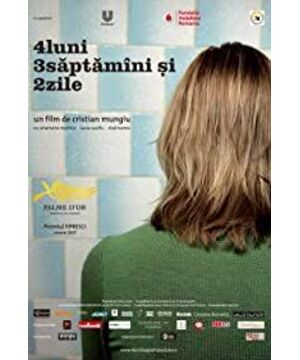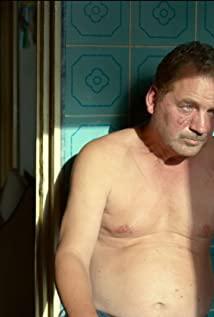for the smooth abortion friends in the same room, with the name of moral pretense of rogue doctors happened flesh transaction, which is the film most people palpitations and touching scene, it shows abortion in the 1980s The legal order constructed in Romania is illegal and repressive enough to make people make great sacrifices. Director Christian Mongi said, “In order to increase the national labor force, the government regards abortion as liberalism and opposes socialism. The criminal behavior of the regime.” He emphasized that in Romania in the late 1980s, which was still a socialist country, abortion had the political significance of “liberalism”. Resistance." From history, we know that the film happened in 1987 when Nicola Ceausescu’s dictatorship over Romania entered the 22nd year. Two years later, his 24-year rule will In a revolution, it was wiped out. "After the disappearance of the socialist system in 1989, the government's first measure was to legalize abortion." The authorities did have too many reasons to restore "abortion" to the realm of morality.
The narrative rules created by it are very different from the movie "Vila Dević", which also reflects abortion. Although some people think that they have the same theme except for their different social backgrounds, the functional differences of the social backgrounds The two films lead to different themes. For "Villa Drake", the background description is obvious. We can follow the story in the film to understand the abortion situation in the 1950s in the UK, and more importantly, it is here. What is assumed is a moral meaning, although Mike Lee does not deny the political nature of the film, "My films are all politically significant, and "Vila Drake" is no exception: the protagonist is expelled from the social system." But the protagonist Vera’s act of striving for the legalization of abortion is ultimately a human right, unlike "April Three Weeks and Two Days," whose political nature does not allow it to waste morally, or it even some people say All "political metaphors" of "Abortion" refer to the abortion of Ceausescu's dictatorship.
The gloomy city streets, the lifeless atmosphere, and the cramped space all signify the cruelty of the Romanian political situation and the suffocation of humanity. Jim Hopman said that in such a society, “even closing a car door can cause controversy. "Mengji hopes that this reality is "just the background of the story, not the theme." One of his aesthetic contributions to the film is also "de-contextualization." To seek an inevitable connection between it and the film, then this film is just a boring and boring story. In fact, it does make people sleepy, but "try to respect and reproduce the reality at the time" inevitably makes the background The first protagonist of the film cannot but say that this is the aesthetics of the film. It is the subtle tension between "respecting and reproducing the reality at the time" and "avoiding too much focus on the ideology of the end of socialism" to construct this aesthetic. The value of "stories and characters" to the maximum extent is appropriately circumvented the excessive penetration of ideology.
From the relationship between the characters and the social background, Mengji thus constructed a series of explicit or implicit political innuendoes to the Romanian society before the dramatic changes in Eastern Europe. The "innuendo" or "metaphor" needs to be discussed here, because it is not an allegory, but The presentation of a piece of history is nothing more than “de-contextualization”. “De-contextualization” is the attribute of Kafka’s works. Allegorical writing is the genius of the number one German writer in the 20th century. But Walter Jens even believes that Kafka's interpretation does not have allegorical vocabulary such as "meaning", "symbol", "metaphor", etc. The Castle itself is an allegorical body that refuses to dismantle. But for "April, Three Weeks and Two Days", we might as well believe Mengji's comment on it, "Urban Legend". Does the long shot achieve the realistic texture as Bazin advocated? In "Urban Legend", its role-playing in the few spatial alternations is indeed difficult for us to easily come out, because it looks at the Eastern European politics during the Cold War from the perspective of modernity, which makes us both unfamiliar and familiar.
View more about 4 Months, 3 Weeks and 2 Days reviews










